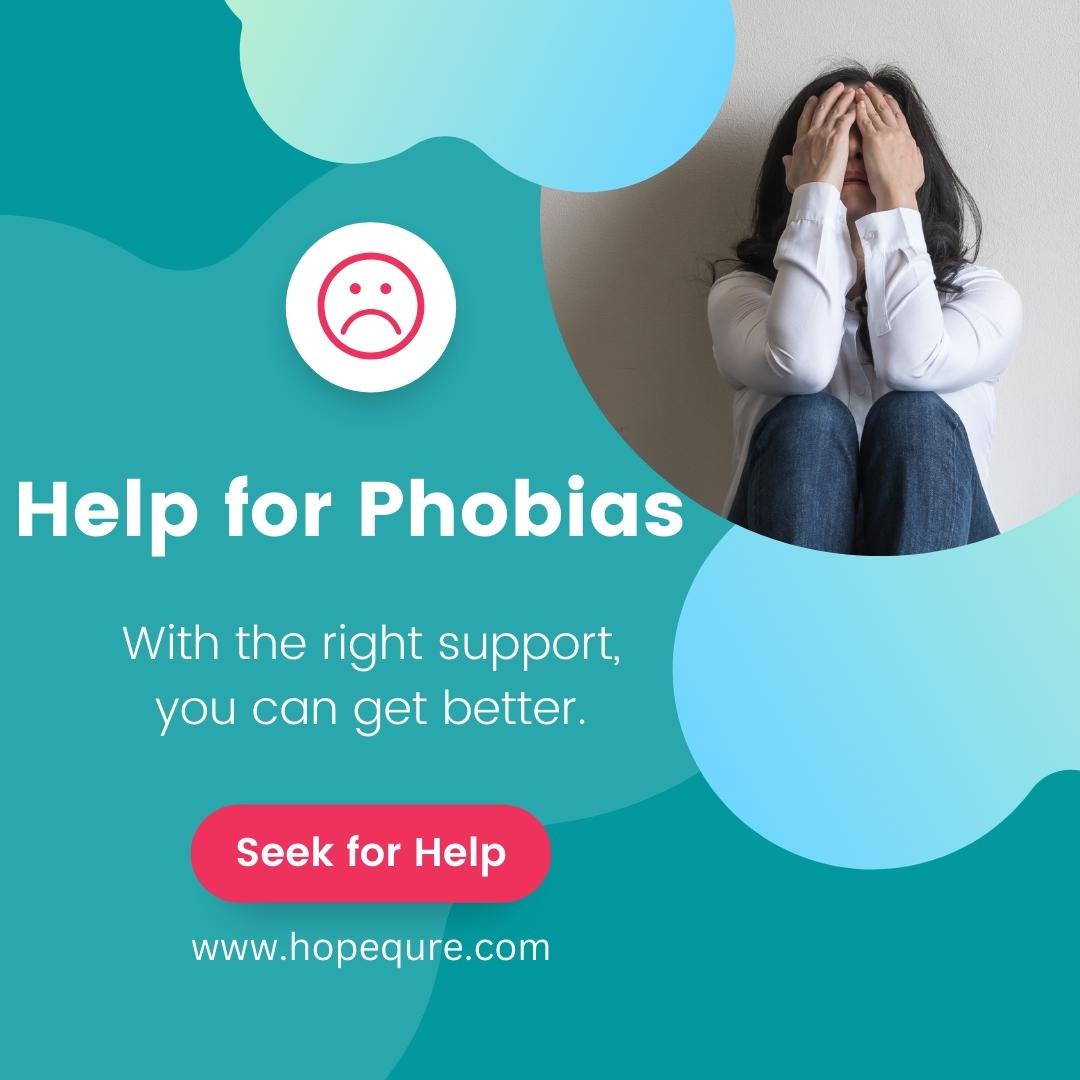Help for Phobias

Phobias are more than just simple fears; they are intense, irrational, and often debilitating. For those who suffer from phobias, everyday situations can become sources of overwhelming anxiety and panic. However, there is hope and help available for those struggling with phobias. we'll explore various strategies and resources to help individuals overcome their phobias and reclaim control of their lives.
Understanding Phobias
Phobias come in different forms, including specific phobias, social phobias, and agoraphobia. While specific phobias involve intense fear of particular objects or situations (such as heights, spiders, or flying), social phobias revolve around fear of social scrutiny or embarrassment. Agoraphobia, on the other hand, involves fear of situations where escape might be difficult or help might not be available.
Recognizing Symptoms
Symptoms of phobias can manifest in physical, emotional, and behavioural ways. Physically, individuals may experience rapid heartbeat, sweating, trembling, and shortness of breath. Emotionally, they may feel intense anxiety or panic attacks. Behaviorally, they may engage in avoidance tactics or exhibit irrational reactions to their phobic triggers.
Seeking Help
Fortunately, help is available for those struggling with phobias. Self-help strategies such as deep breathing exercises and progressive muscle relaxation can provide some relief. However, for more severe cases, professional help is often necessary. Cognitive-behavioural therapy (CBT), in particular, has shown great effectiveness in treating phobias, offering techniques such as exposure therapy and cognitive restructuring.
Medication Options
In some cases, medication may be prescribed to help manage the symptoms of phobias. Anti-anxiety medications, beta-blockers, and antidepressants are among the common options. These medications can help alleviate the physical and emotional symptoms associated with phobias, making it easier for individuals to engage in therapy and other forms of treatment.
Alternative Therapies
In addition to traditional therapy and medication, alternative therapies such as hypnotherapy, mindfulness, and acupuncture may also offer relief for some individuals. These approaches focus on holistic healing and can complement traditional treatments by addressing underlying issues and promoting relaxation.
Support Systems
Building a strong support system is essential for individuals struggling with phobias. Family and friends can offer understanding and encouragement, while support groups and online communities provide opportunities for connection with others who are going through similar experiences.
Overcoming Phobias
Overcoming phobias is a gradual process that requires patience and persistence. Techniques such as gradual exposure to feared stimuli, setting realistic goals, and celebrating progress can help individuals gradually confront and conquer their fears.
Living with Phobias
While overcoming phobias is possible, it's also important to acknowledge that living with a phobia is a journey rather than a destination. Developing coping mechanisms, making lifestyle adjustments, and staying vigilant against triggers are all important aspects of managing phobias in the long term.
Impact on Relationships
Phobias can have a significant impact on relationships, affecting communication, social activities, and overall quality of life. Individuals with phobias need to communicate openly with their loved ones, educate others about their condition, and seek understanding and support from those around them.
Breaking Stigma
Breaking the stigma surrounding phobias and mental health in general is crucial for promoting empathy, understanding, and access to resources. By addressing misconceptions, advocating for mental health awareness, and sharing personal stories of recovery, individuals can help reduce stigma and encourage others to seek help.
Tips for Supportive Allies
Friends and family members can play a crucial role in supporting individuals with phobias. By offering empathy, encouragement, and practical assistance, allies can help create a supportive environment conducive to recovery. However, allies need to avoid enabling behaviours and instead encourage their loved ones to seek professional help when needed.
Conclusion
Phobias can be incredibly challenging, but they are not insurmountable. With the right support, resources, and treatment, individuals can learn to manage their phobias and live fulfilling lives. Remember, it's okay to ask for help online, and you are not alone in your journey towards overcoming your fears.
- Art
- Causes
- Crafts
- Dance
- Drinks
- Film
- Fitness
- Food
- Giochi
- Gardening
- Health
- Home
- Literature
- Music
- Networking
- Altre informazioni
- Party
- Religion
- Shopping
- Sports
- Theater
- Wellness


